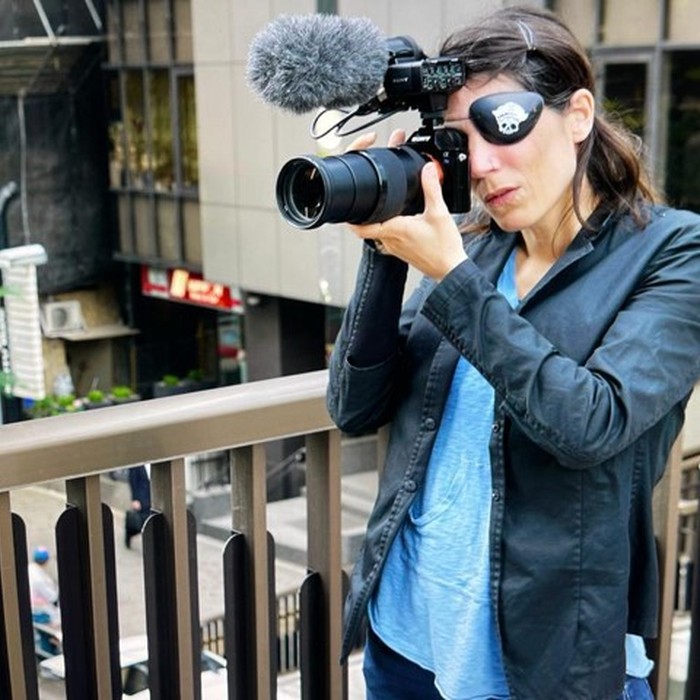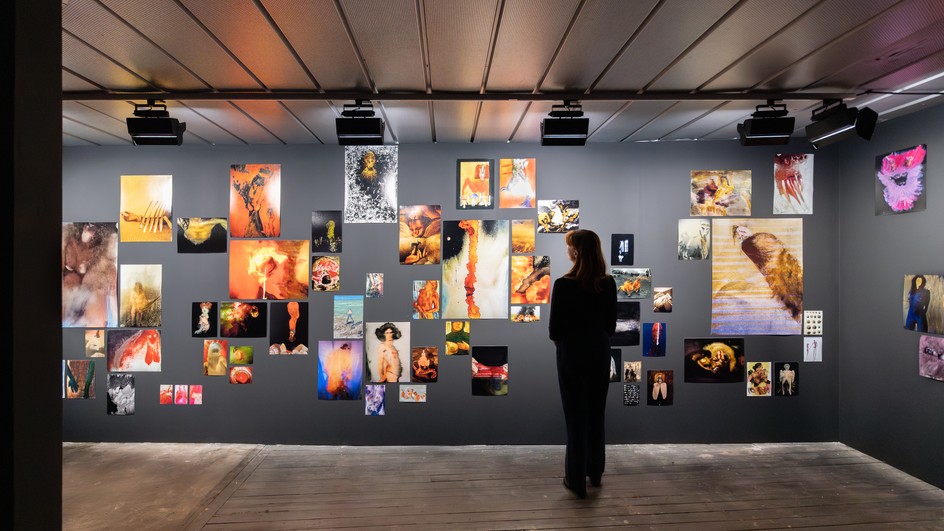
Visiting artist professor
2023 - 2024
Véréna Paravel
Born in 1971 in Neuchâtel (Switzerland)
Véréna Paravel is a filmmaker, artist, and visual anthropologist. Her work conjugates art's negative capability with an ethnographic attachment to the flux of life and an engagement with the pressing ecological and political challenges of our day. Her films have screened in Berlin, Cannes, Locarno, New York, Toronto, Venice, and other film festivals, are in the permanent collection of New York's Museum of Modern Art, have been exhibited at the Venice Biennale, documenta 14, Centre Pompidou, Tate, MoMA, Whitney Museum of American Art, Barbican, Berlin Kunsthalle, PS1, and London's Institute of Contemporary Arts. Her works include Foreign Parts (which documents life in a New York junkyard on the verge of disappearance), Leviathan (a visceral feature about humanity and the sea, and our plundering of marine resources), Ah humanity! (which reflects on the Fukushima disaster and the fragility of humanity in the age of the Anthropocene), Somniloquies (an essayistic film based on archival recordings of the dreams of the world's most prolific known sleep-talker), Caniba (a reflection on human cannibalism), and De Humani Corporis Fabrica (a novel portrait at once of the anatomical body, the medical body, and the body politic).
While at Le Fresnoy, Paravel will work on a project called Our Nature. It is rooted in the impulsethatwehaveanurgentneedtorethinkour relationship to what is often subsumed under the concept of "nature," including climate change. To her mind, almost all so-called "nature," or "natural history," films typically fall short because they are either overly romantic, overly anthropomorphic, or overly apocalyptic. Their cinematography is increasingly spectacular, recently enabled by the invention of drones which permit a proximity to other animals that was previously impossible. But they rarely leave spectators with the sense that we too are part and parcel of nature, or evince any substantial interest in the sentience of other species. Her goal is to accomplish two apparently opposed feats simultaneously convey that humanity
is inseparable from a much vaster swath of nature, that dwarfs us and is of an intricacy and complexity that we can barely fathom, at the same time as revealing us how humanity has often blindly sought to dominate, destroy, and distance itself from nature, as well as how many human efforts to re-connect to nature end up inscribing various versions of nature-culture dualisms that are politically and ecologically regressive. Moreover, it must do so in such a way that viewers will leave the film actively desiring to restore our relationship with the natural world (and in the process also ourselves).
Each chapter will conjugate the past, present, and future of the planet simultaneously. Among them one will be about the so-called Pleistocene Park (a project to repopulate the northern subarctic ecosystem with neo-mammoths), one about sand, the most important solid stuff on earth -- a horrifying ecological catastrophe about which almost none of us is aware --- one about fish sentience, drawing on a whole swath of recent studies that have revealed the intricacy and complexity of fish cognition (their pallium seems to fulfill many of the same functions as our neocortex). Some of the studies suggest that a some fish are both as playful and as Machiavellian as we are. In this film project (as well as photography, and a possible VR project I will develop at the same time) I currently anticipate that there will be 5-6 more chapters, including one on insect sociality and play (also concentrating on a species threatened by global warming), and another on mushrooms and plants.

